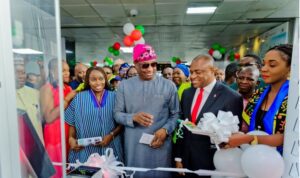Naira’s decline continues despite CBN efforts, experts stress need for productivity boost
Despite efforts by the Central Bank of Nigeria (CBN) to bolster the country’s currency, the Naira continues to face a relentless decline, prompting financial experts to emphasise the need for accelerated productivity as the key to strengthening it.
Amidst widespread concern over the Naira’s depreciation, with the currency trading at a staggering N900 to the dollar in the parallel market, the CBN’s monetary policy initiatives have failed to yield the desired results.
In light of this, experts argue that a significant boost in productivity is crucial for the Naira’s stability and growth. By enhancing productivity across various sectors of the economy, Nigeria can potentially increase its export capacity, attract foreign investments, and ultimately strengthen its currency.
Addressing the ongoing challenges faced by the Naira requires a comprehensive approach that goes beyond monetary policy interventions. It necessitates a concerted effort to enhance productivity through the implementation of policies that promote innovation, efficiency, and competitiveness.
According to Mr Okechukwu Unegbu, a financial expert, only accelerated productivity will stabilise and strengthen the Naira.
Unegbu, a past president of the Chattered Institute of Bankers of Nigeria (CIBN), said that the Naira is in a pitiable situation and requires commitment by the government to salvage it.
“The crude oil market is on the downward trend; our bonny light is not doing well in the international market and we have very little window to manoeuvre because the Naira and our productivity do not align.
“There is no economic theory that can change the situation. The only way to bridge balance of payments deficits is to increase productivity,” he said.
A Professor of Capital Market at the Nasarawa State University, Keffi, Uche Uwaleke, said that the economic fundamentals required to support a naira float are still weak, especially in relation to sources of forex.
According to Uwaleke, who is the Director, Institute of Capital Market Studies at the university, the unification of exchange rates as done by President Bola Tinubu, should not be a one step process.
“It should be implemented over a period of time, however, short it may be.
“Empirical evidence suggests that reforms are more successful when they are sequenced and implemented in phases.
“So, while fiscal and monetary policy reforms are welcome, absolute care should be taken to strike the right balance and minimise their unintended consequences,” he said.
Uwaleke said that the recent, second quarter real Gross Domestic Product (GDP) performance was also disturbing.
“Growth was driven by the Non-oil sector. Oil sector ranked considerably on account of reduction in crude oil production
“The Non-oil sector performance was powered by the Services sector (4.42 per cent), especially by telecoms, trade and financial services.
“In my view, this identified growth pattern, weighted in favour of the services sector, is not healthy for a developing economy such as ours.
“Economic growth does not appear inclusive reflecting in rising unemployment and poverty levels, which the new NBS methodology attempts to mask,” he said.
He said that it is time to reset the faulty economic structure, leveraging technology in favour of the productive sectors like industry and agriculture.




